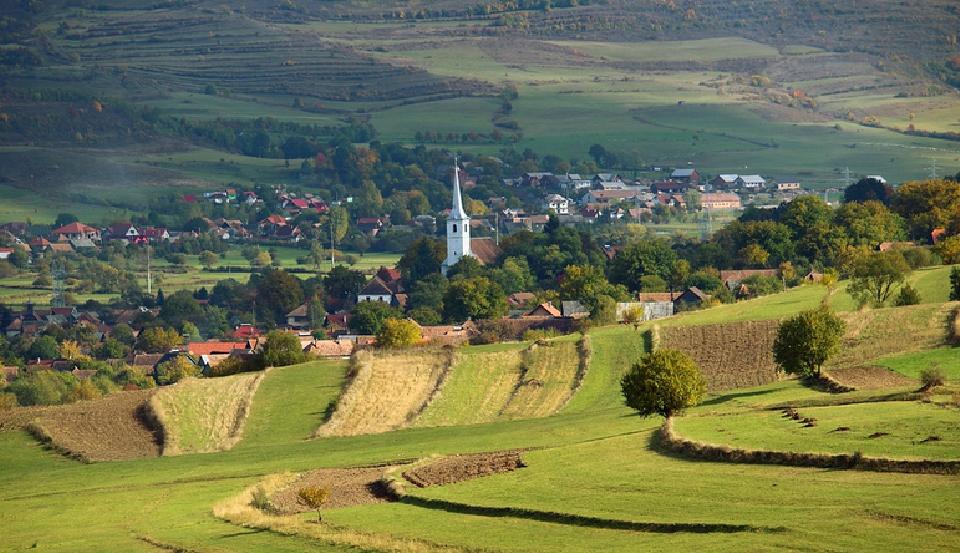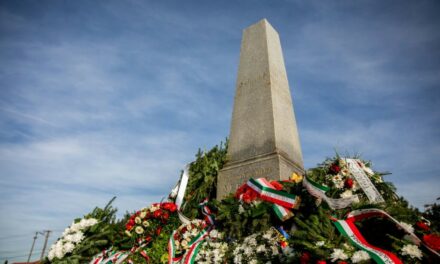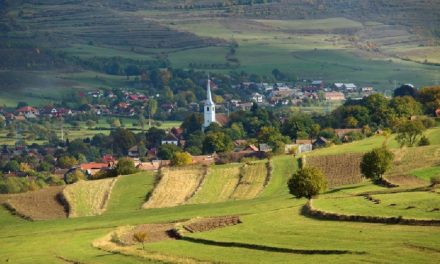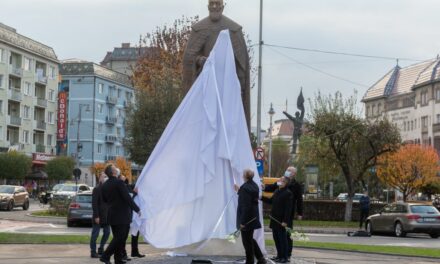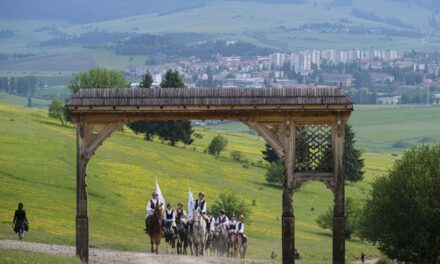Being a Transylvanian means I know what it's like to live in a dictatorship that aims to erase your identity. Ceausescu's "homogenization", the massive resettlement of the Romanian population from beyond the Carpathians, the population exchange radically changed Transylvania. Many people wrote a lot about this, we wrote, I approx. every year I write that Transylvania is not there, even though there is a demand for it. And I'll write until I have it.
At the same time, being a Transylvanian also means that I know what it's like to exist as a second-class citizen. What it's like when they hate you just because of your national identity, your mother tongue. What is the state of disenfranchisement, what is the competitive disadvantage to start with. I felt anger when the settled majority in my homeland arrogantly taught me to speak Romanian because I eat Romanian bread. The land, the wheat, the harvesters, the mill, the baker - they were all Hungarian, the bread became Romanian.
Being a Transylvanian also means that you understand all the nuances of "living in its language". The real stake is not a song's lyrics, a film, or publicism, but an understanding of scientific ideas. Try to explain in a foreign language what exactly is wrong with you and then understand what the doctor will answer. Your life could depend on it.
Being a Transylvanian also means that you feel it on your skin: homeland and nation are not concepts of the same scope. But you also know that they presuppose each other: there is no nation without a homeland, and no homeland can be built without a nation. Being a Transylvanian means that we know exactly what is coming and what we stand to lose if the New Left rampage gets stronger, if the madness of identity politics gains more ground.
We've seen it before. We experienced the »cancel culture«. The Ceausescus wiped out the Jews from Transylvania, the Saxons, the Swabians, they wanted to wipe out us Hungarians as well. The methodology of re-education to the "multicultural type of person living in an open society" is eerily similar to this. The trap of global multiculturalism is about this: first convince the citizen that he is better off as a global citizen. Then delete the citizen from the citizen of the world.
As a Transylvanian Hungarian who lives and works in Budapest, loves his country and homeland, and wants to strengthen his nation, I can quote Károly Kós a hundred years ago, reinterpreted and in full agreement:
"It's been two [ten, thirty, fifty, one hundred] bitter years that our eyes look westward. We saw how the sun went down there. Our hopeful, trusting, longing and sore eyes watched as our tears flowed from it.
Because the sun was only going down, declining;
slowly at first, then faster, finally it fell down and only the bloody clouds remained in the sky. Now we can rub our eyes: No more for now. This day is down, it's over. […]
We must learn the lesson; we must face the inexorably harsh reality and not delude ourselves. We have to work if we want to live, and we want to live, so we will work. But only in ourselves - beyond that - for ourselves.
And don't look towards the west anymore. It only makes our hearts heavy and our eyes hurt. There the sun has set, and only the sky is still beating, and the heavy clouds of fate rolling in the sky. It just brings tears to our eyes.
Let's be careful! Tears are expensive and - let no stranger see what hurts us. But with a thousand-year-old pride we keep our eyes above the crest of our mountains, because this is where our dawn will have to dawn.« (Kiáltó szó, 1921)
Károly Kós didn't know what kind of hundred years lay ahead of us, but he knew that we were a "great increase in strength". Trusting in this (we have a hundred years of evidence for it), we can hope that when we work »with ourselves for ourselves«, we do it for something more.
As we put it in Sunday night's Bayer Show: we have to change from a ferry country to an anchor country. The Carpathian Basin can be the Noah's Ark of Western culture. This is what we have to organize from here on the Iron Curtain. We are Europe."
Source: Mandarin

